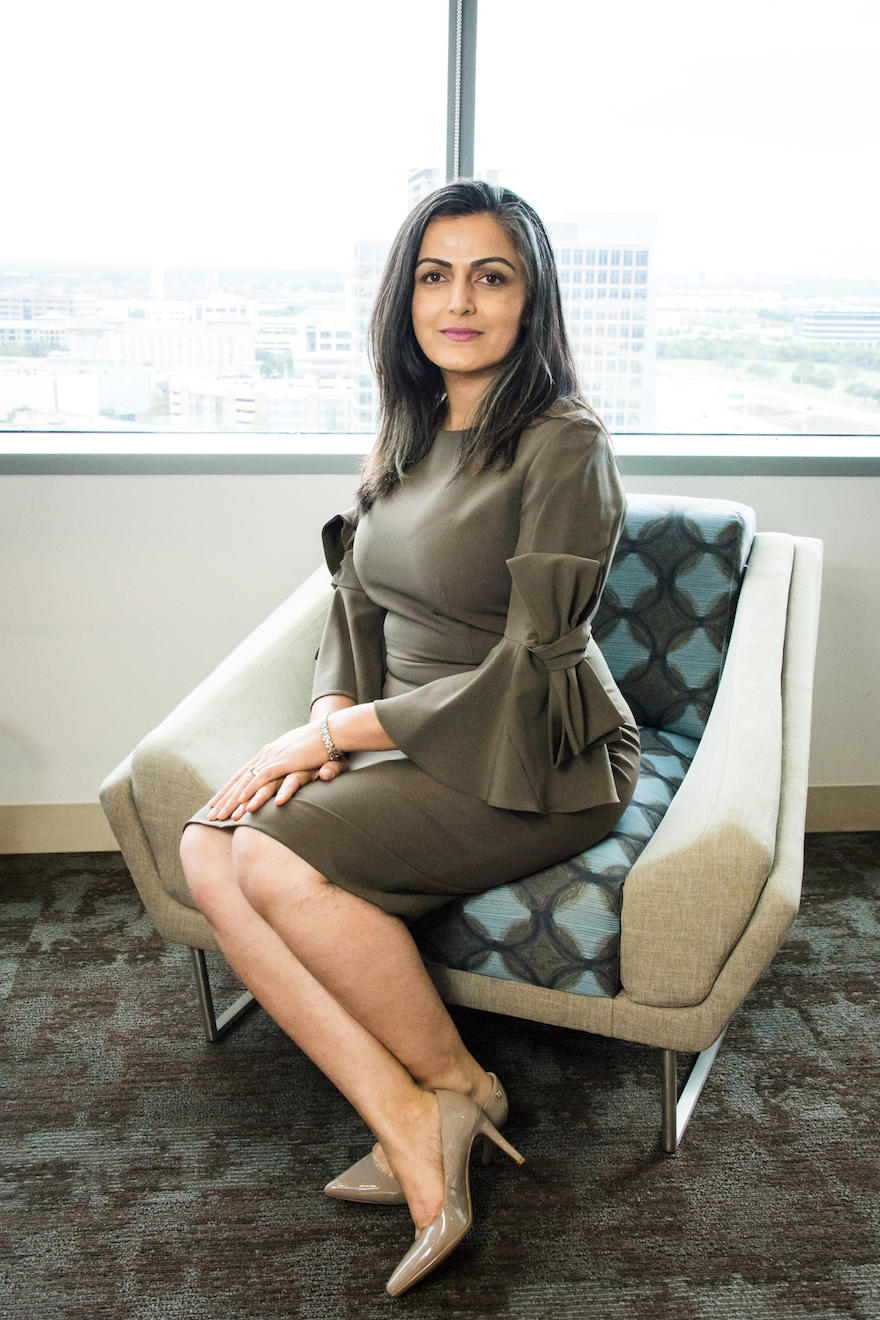Southerners are often remembered for their hospitality, comfort foods, gentility … and drawl. As I prepared for my interview with Soraya Mangal, a self-described Muslim and immigrant, I had not anticipated our conversation dovetailing into anything related to the southern states. As we delved into the interview, Soraya told me, “I can bring my southern charm whenever I want,” and did so in the most authentic dialect imaginable. I must admit, as a native of the Deep South, I was a bit taken aback. I asked Soraya to tell me more, and I settled in for a treat.
Soraya charmingly giggled and commenced to telling her story.
“I grew up in Afghanistan during the Russian invasion. My father was killed by mistake during that invasion. I also lived in Pakistan for a couple of years. Thankfully, I had my mother, and we [later] came to the United States,” Soraya says. “We arrived as immigrants with literally only some clothes in little bags and a few dollars. Since arriving, I’ve lived in California, Virginia, Georgia, and now Texas.”
During her reflection, Soraya made a point to comment on the Georgia peaches.
“The peaches on the farms in Georgia were like grapefruits,” Soraya says. “Later, when we visited, I always made a point to buy some Georgia peaches!”
As Soraya passionately shared details about her personal life, including the fact that she has three children of whom she is extremely proud, she encourages others to open up and tell their stories. She sees this as an important avenue for community members to gain understanding about each other, which is key to moving the needle forward with respect to diversity and inclusion.
Read more: Meet Parikshet Babber, the new chief medical officer for Medical City
“It is so important in our personal and professional lives to get educated,” she says. “Allow your neighbor, coworker, or whomever you know — people that you come in contact with across in the world — to ask questions like, ‘Where do you come from? What are some differences in your culture versus ours?’ Our differences make us stronger and can bring us together.”
While Soraya opened her heart about her personal experiences, I could not stop myself from thinking about our current state of affairs — where people and communities once united seemingly stand divided along racial and political lines. I wished more individuals thought and felt the way Soraya seemed to think and feel. It was as though she was reading my mind when she spoke about the force that all too often drives a wedge between the strongest of entities: fear.
“Fear can be a great thing,” Soraya says. “It is also a horrible thing because it holds us back from realizing our full potential and the potential of the people who surround us. So it is important that people are not discriminated against, but it is also important that people realize their own strength and the strength of our communities and the individuals that make up our communities.”
As the Vice President and Banking Center Manager of Legacy Texas Bank, it is evident Soraya did not allow fear to hold her back. While she acknowledges the role diversity and inclusion may have played in her success, Soraya is very deliberate in highlighting the importance of merits.
“It has to be handled with care and education; otherwise, it can lead to a sense of entitlement for some and resentment for others,” Soraya says. “ So, while it is important to have diverse team inclusion, there has to be education. It can’t just be, ‘I’m going to hire women.’ Those women must have merits.”
Soraya looks to her own situation — where she was promoted to lead the largest branch after only 10 months — as an example of how companies and individuals must do their parts.
“To help our world — with diversity and inclusion — we must get educated and we have to know,” Soraya says. “We must know who we are and where we come from in order to help our world. Education at a young age is so important. There is no company or country that cannot benefit from a culture of diversity and inclusion. We have a lot of work to do, but I am hopeful and optimistic; we are moving in the right direction.”
As for those Georgia peaches, Soraya recalls conversations with her children where she reminisces on her native country, its fresh fruits, and her life as she knows it in the United States.
“Even though the peaches in Georgia are good, I always tell my kids it’s nothing like the food in Afghanistan; everything there is so organic.” Soraya says.
Regardless, she appreciates her life now and the opportunities to share her stories and impact people in positive and meaningful ways.
”What kind I say?” Soraya commented. “I’m as diverse as they come — a southern bell and a real Georgia peach!”




